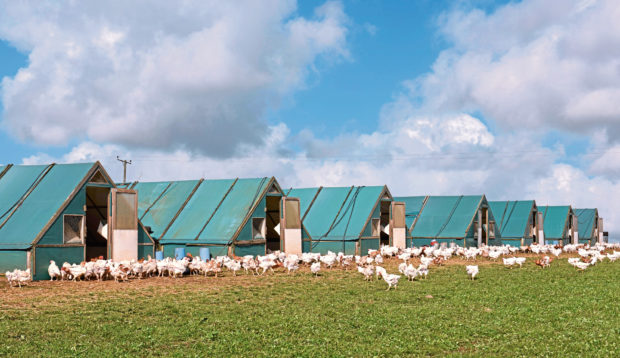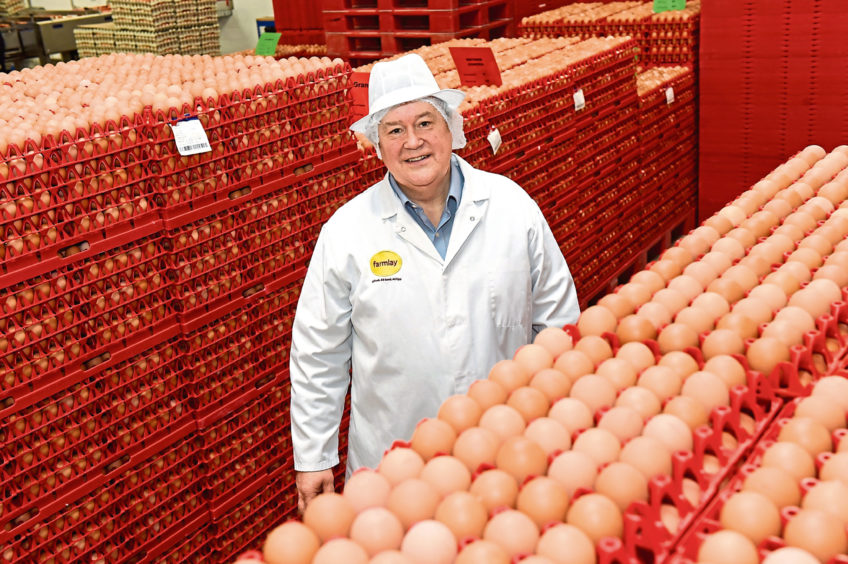As fears grow of an escalation in Avian Influenza (AI) outbreaks, free-range egg and poultry producers are facing an dilemma over the wisdom of letting their birds outside.
An official government housing order, which producers expect to be introduced sooner rather than later this year, would allow free-range birds to be kept indoors and eggs sold as barn-produced – but only for 16 weeks.
One of Scotland’s biggest egg producers, Robert Chapman of Farmlay near Strichen, says the industry is on a knife edge as it weighs up the need to protect flocks right now –but also in the spring when migrating wild birds will again risk spreading the disease.
“We’d quite like a housing order at the moment but it’s a trade-off, because after 16 weeks we would lose our free-range status,” he said.
“We’re hoping we can hold on for about another month which would see us through to spring when the migrating birds have left and there’s more sun to kill the virus. But we’re keeping a close eye on the situation every day.”
Measures being taken at Farmlay include ever-increasing biosecurity, washing all vehicles that come on site and having stockmen work in separate sheds.
Robert said: “But there’s not much you can do about the wild birds.
“Free-range systems are susceptible because they’re outside and potentially in contact with migrating birds. It just takes one diseased wild bird to die or defecate on the range and you have potential for infection – and it’s a devastating disease with high mortality.”
An outbreak of low pathogenic AI has already been confirmed in Aberdeenshire, and the UK Government’s Animal and Plant Health Agency (APHA) recently confirmed a new case of the disease has been found in captive birds in a premises near Stroud. Forensic work is now ongoing to determine the pathogenicity.
Meanwhile, although no human cases have been detected in any of the 300 or so outbreaks reported in Belgium, Denmark, France, Germany, Ireland, the Netherlands, Sweden and the UK this year – and the likelihood of transmission to the public remains low – the European Food Safety Authority (EFSA) says the evolution of the AI viruses must be monitored.
EFSA’s health unit head, Nik Kriz said: “Preventing further escalation of outbreaks will require close cooperation between animal, public, environmental and occupational health authorities – in other words, a One Health approach across Europe.

